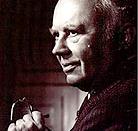It is difficult to explain the ideology of conservatism as it can take on many forms; authoritarian, religious, libertarian and one-nation to name but a few. Many conservatives argue that conservatism is not an ideology at all but rather a political persuasion. Because of the broad spectrum of ideas that can all be called conservatism, this essay will deal with the basis of conservative theory that is common to most forms of the 'ideology'. Neoconservatism, conservatism's 'new right', will be contrasted with its predecessor to demonstrate the differences between traditional conservatism and its newest form, and ultimately to show that the two movements have very little in common at all.
Conservatism is essentially a resistance to change. Traditional conservatism emerged in the early 18th century as a protest against the seemingly radical ideas of the Enlightenment, the French Revolution, industrialisation and the support of universal suffrage. These new ideas and theories, in the eyes of the conservatives, challenged the very stability of society.
They brought with them political and economic change that have ultimately had a profound impact on civilisation. Conservatives believed they were the 'defence of an increasingly embattled traditional social order' (Heywood 1998:66). Conservatives have a deep respect for tradition and authority. In opposing change, they hope to maintain the traditional institutions that have created and established a morally righteous society. Conservatives are particularly hostile towards idealistic, 'abstract' theories of change rather than change that occurs as an extension of existing institutions (McLean & McMillan 2003:114).
The philosophy of Edmund Burke (1729-1797) gave conservatism an ideological base. Burke was an elitist, believing that 'the rich, the able, and the well-born govern' (Baradat 2003:25), while the rest of society should dutifully submit to their rule. It is argued by many conservatives and 'outsiders' however that conservatism is...


